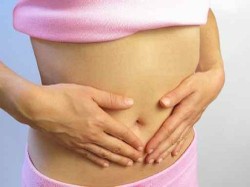What Is Vitamin B9?
Folate, also known as folacin and folic acid, is a member of the B complex group of vitamins. Like the others, folacin is water soluble.
The vitamin was first isolated in yeast and liver in 1935 and called vitamin M. After the same vitamin was isolated in spinach in 1940 the name was changed to folic acid because the vitamin's main source is green leaves or "foliage".
The body can store a little of it, but excess is mostly excreted.
What It Does For You
- It is necessary for the production of red blood cells and for the division of body cells.
- It helps metabolise protein and fats.
- The functions of this vitamin are closely allied to those of vitamin B12.
What Destroys It?
It can be removed from foods that are cooked in water, and by over-cooking. Up to 45% of the vitamin content can be lost in the processing and cooking of foods.
Reheating food and lengthy storage cause sizable loss.
Alcohol reduces the absorption of folacin and so do various drugs, including the Pill.
Food Sources
Important
- Liver (100 gram serving)
- Fresh vegetables - green and leafy e.g. spinach, broccoli (60-100 gram serving), avocado pear (150 gram / 1/2)
Moderate
- Eggs (2)
- Cereals-wheat germ (10 gram serving), bran (10 gram serving), white/wholemeal bread (4 slices), nuts (50 gram serving)
- Fresh fruit - bananas, cantaloupe, berry fruits, oranges (100 gram serving)
- Vegetables-cabbage, cauliflower, peas (60-100 gram serving)
- Yeast products e.g. Vegemite/Marmite (3 gram serving)
Low or Nil
- Lean meat
- Fish
- Milk
- Vegetables - carrots, pumpkin, potatoes
- Fruit - stone fruit, apples, pears
- Fats and oils (trace)
It is important to have enough folic acid during pregnancy
 | Sources of Folic Acid: Covers what is folic acid and folic acid benefits with details of folic ac... Sources of Folic Acid explores the ways in which you can get enough folic acid to make sure that you don't suffer any deficiency problems. Folic acid is very important when it c... |
 | What to Expect When You're Expecting, 4th Edition Announcing a brand new, cover-to-cover revision of America's pregnancy bible. What to Expect When You're Expecting is a perennial New York Times bestseller and one of USA Today'... |
Deficiency Problems and Symptoms
Severe deficiency causes a specific type of anaemia which can be contracted by pregnant women. This is a serious disease which can be very harmful to both mother and child.
Mild deficiency can result in blood abnormalities.
Symptoms include insomnia, irritability, weight loss, general fatigue and minor mental lapses such as forgetfulness.
Pregnant women are the group most susceptible to deficiency. Alcoholics and the elderly are also at risk.
Folate deficiency can affect the function of the small intestine which in turn can prevent the absorption of other nutrients into the body.
Folate deficiency is considered to be the most common vitamin deficiency on a world wide basis.
Recommended Daily Intake
The Australian recommendation is 200 micrograms of free folate per day with increased amounts for women during pregnancy and while breast feeding.
However, folate is very complicated to measure and exists in several forms besides the free state. This makes it difficult to accurately assess the exact amount required.
You might also like
Vitamin KWhat Is Vitamin K?
How Does Digestion Work?Digestion is the process of breaking down food molecules into forms that can ...









 Your rash and itching problems may be Scabieson 03/10/2013
Your rash and itching problems may be Scabieson 03/10/2013
 Tickson 11/06/2011
Tickson 11/06/2011
 Vitamin Kon 10/10/2011
Vitamin Kon 10/10/2011
 Vitamin Eon 10/10/2011
Vitamin Eon 10/10/2011


Comments